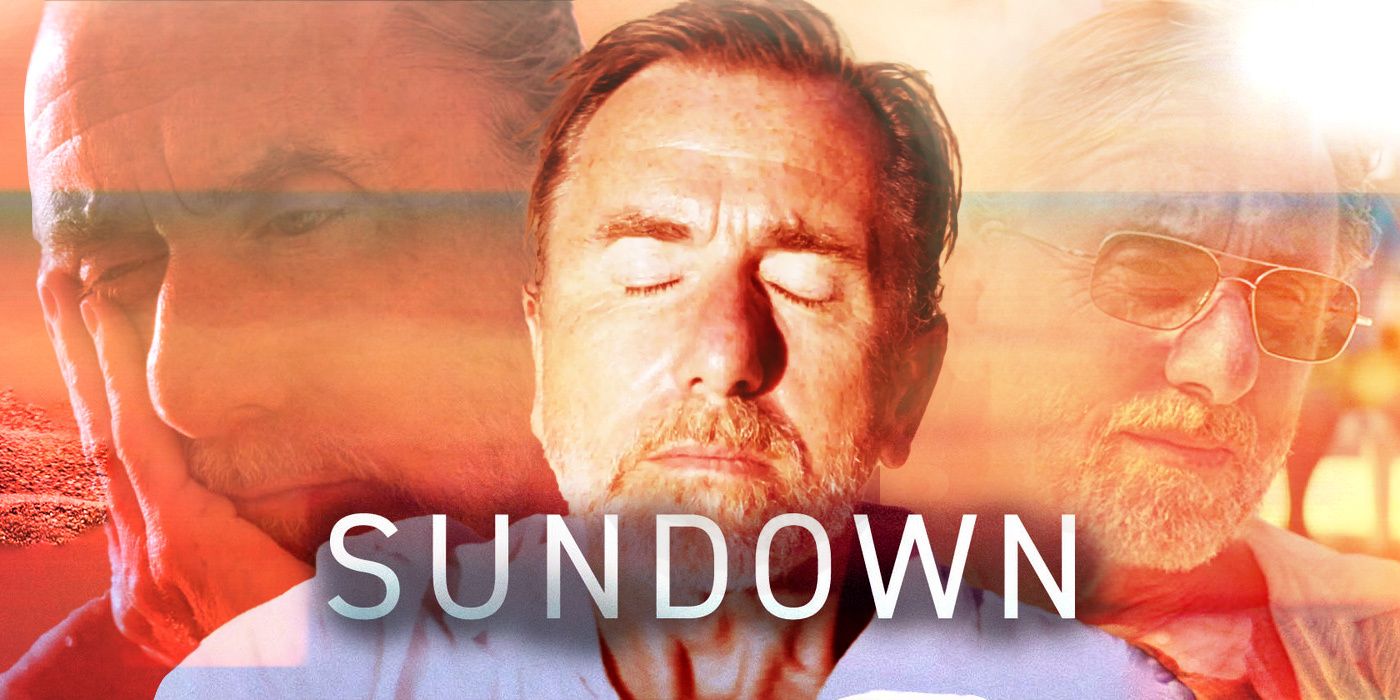The experience of watching Michel Franco’s Sundown, a devastatingly slow-burn of a drama starring a never-better Tim Roth, is akin to the feeling of the waves in the film’s setting washing over you. It follows Roth’s wealthy Neil Bennett as his vacation in Acapulco is interrupted by the news that his mother has died. He is there with his sister. Allison (Charlotte Gainsbourg). and her two children. The plan is for them all to return home now following the sudden loss, though they part ways when Neil says he has lost his passport. Following a tearful separation at the airport, he returns to his vacation.
This is because Neil is lying about losing his passport. He had it with him the whole time and in what seems like an inexplicable series of decisions, slowly begins to cut himself off from his family. He initially keeps up appearances, lying in a string of phone calls with his sister that he is attempting to find a way back home for their mother’s funeral. In reality, he is spending most of his days drinking himself into a stupor at the beach and eventually locks his phone away rather than even pretending to lie anymore. Neil proceeds to slowly recede into himself, seemingly uncaring about anything that happens to him or those around him.
What follows is a tight sub-90 minute story that reveals itself to us gradually, gently coaxing out a quiet sense of pain and loss that commands your attention. This is even as it is a film that moves at its own pace, unencumbered by any feelings of obligation to typical audience expectations. There is a deep sense of confidence the film has in how measured and patient it is as it moves from scene to scene, seemingly without a sense of urgency. For some, this crossed over into being distant to the point of being shallow with descriptors being thrown around like “underwritten” or even “boring.” This led to one person falling asleep in my theater, ultimately missing the film’s mesmerizing conclusion.
It is regrettable that someone would miss the end of a film like Sundown which, even as it wasn’t ever going to be for everyone, still represents a unique experience in cinema that should be valued. No matter whether this particular film speaks to you, what it represents is something that more films can and should embrace. It is a film that requires an abundance of patience from the audience, though it provides a moving and melancholic experience that is all too rare. If you are willing to sit with it and let it wash over you, there is something deeply profound to be found within it. It lets its story unravel slowly, leaving you to take in all aspects of the screen even at moments where it seems like nothing is happening.
The emphasis must be placed on the word “seems” as there is actually quite a lot happening, though it will only be understood if you are able to get on the film’s wavelength. If you are instead waiting for some sort of big revelation or explosion of conflict to occur, then you will miss out on all it has to offer. One could simplistically refer to the film as being largely about a man who sits on a beach for days at a time though it is so much more. He is almost entirely isolated, speaking very little to anyone. Information sneaks out in calls with his sister, though even that is limited. In interactions he has with a newfound lover, Berenice (Iazua Larios), Neil seems distant and reserved to the point of being alienated from almost everything happening around him. It becomes clear that this is intentional, a decision he makes consciously.
When the film reveals why Neil has built up this wall of silence and isolation around him, it recontextualizes everything. The selfish choices he made are still deeply self-centered, though they are now infused with a greater sense of loss and tragedy. You still feel a sense of frustration with how he treated those closest to him, but you simultaneously begin to develop a greater sense of empathy for him. The way this information, which I shall not reveal here in order to preserve the moments of discovery, is withheld is fundamental to what makes such a slow-burn experience such a rewarding one.
It defies easy explanation and, in many cases, may not give key answers at all. Instead, it is an enigma of an experience that even dips into surrealism the longer it goes on. These films are about watching and listening, creating an experience of being an observer of a life unfolding that initially has little sense of why this is happening. It may be bewildering in how mysterious it is, though it carries with it a certain boldness that defies any rules about how films should play out. Sundown’s narrative defiance makes for an impactful ending that sticks with you longer than any conventional film.
Most films that get wide releases lack sufficient trust in their audience to commit to moving at their own speed. After all, most of the films that get released follow a structure that is all about telling us everything all at once and just moving along from there. These stories are enjoyable in their own right, though they aren’t all that is out there. A film like Sundown can offer much in its commitment to frankly showing the development of a world that requires patience from us. It creates an authentic sense of loneliness that becomes crushing the longer it goes on, unflinching in laying bare the flaws of its characters.
To experience something like this rings so true to life that it can create feelings of discomfort, though it is a glorious sense of unease because of how genuine it all is. It reveals how there is unlimited potential with films that are considered to be a “slow-burn” story. The fire of these films can soon grow into a raging inferno if given enough oxygen and care to let them shine.
Sundown is now available to stream on Hulu and is available to rent on VOD services.




